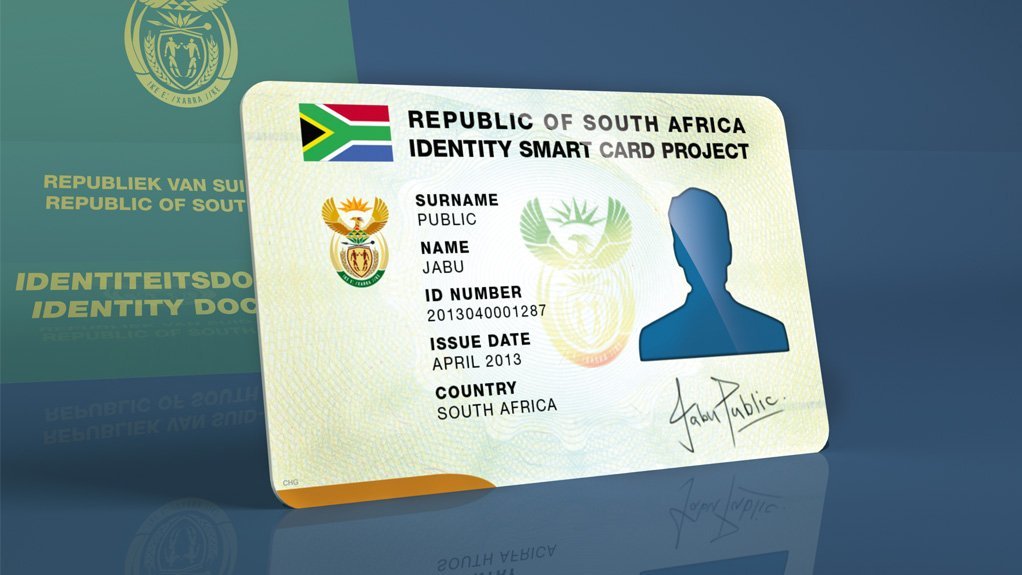Home Affairs aspires to expand e-services, online document applications


SMART APPLICATION The main objective of the partnership with the banks is to make more centres available at which people can apply for SmartID Cards and passports
While the new service of applying online for SmartID cards and passports through the eHome Affairs portal and at major banks, Gauteng will initially cater for people aged between 30 and 35, the Department of Home Affairs (DHA) hopes to extend the system to other age categories and more centres across South Africa, says Home Affairs Minister Malusi Gigaba.
The DHA also aimed to extend this technology service to civic applications, such as marriage, birth and death certificates, with the department “working around the clock to digitise all documents”, Gigaba said at the launch of the eHome Affairs, or eChannel, portal earlier this month in Midrand, Gauteng.
He added that, in launching the DHA-facilitated eChannel pilot project, “the department is presenting to our nation the backbone of eGovernment and administration”.
Citizens with access to the Internet can apply for a SmardID card or passport on the eHomeAffairs portal, after which they have to go to a partnership bank of their choice to complete the application by submitting their fingerprints and photographs, based on appointments and prior payments made online.
Participating banking firms Absa, First National Bank, Nedbank and Standard Bank provide the online application platforms in dedicated service spaces, as well as service staff for the department’s kiosks inside the banks.
There are currently 11 centres in Johannesburg, Gauteng, and one in Cape Town, in the Western Cape.
The collaboration was facilitated through the South African Banking Risk Information Centre and the Banking Association South Africa.
Gigaba highlighted that the initiative of using the footprints of South African banks to assist in identity document (ID) applications was “a world first”, adding that the department offered not only menial services but also services that are important for the economy, security, governance, administration and service delivery.
President Jacob Zuma, who launched the eChannel, highlighted that the service was a key development as government sought to build a State that was responsive to the needs of the people by providing better, faster and more secure services.
“This next step entails better use of technology . . . ” he said, noting that, as government could not do this alone, it entered into a partnership with banks to extend access and empower their clients.
However, he pointed out that the National Population Register has on record more than 38-million citizens who had a green ID book, which had to be replaced within five years. Also, one-million 16-year-olds required SmartID cards every year.
Zuma, therefore, highlighted the “formidable challenge” of 407 Home Affairs offices that were not designed to support more than 38-million citizens within a five-year period and could, therefore, not manage the replacement of green ID books for them within the specified timelines.
He added that the main objective of the partnership with the banks was thus to make more centres available at which people can apply for SmartID cards and passports.
Government estimates that, with the four banks’ participation, it would be possible to reach more than 20-million people, while reducing fraud through confirming the identity of banking clients.
The banks highlighted that identification was the backbone of the banking system, with Absa retail and business banking chief executive Craig Bond stressing that the ID card was “at the core of creating financial inclusion for tens of millions of South Africans”.
Standard Bank CEO Sim Tshabalala added that the public–private banking sector had proven that obtaining a SmartID card or passport could be fast, efficient and secure, adding that this initiative would be an outcome of great social and economic significance.
“This system is equally vital to the economy; secure identity is essential to every aspect of banking . . . When this pilot [project is] . . . scaled up, we will be able to prove . . . that when business and government unite in partnership, we can do [a lot] to improve the lives of citizens,” he concluded.
Comments
Press Office
Announcements
What's On
Subscribe to improve your user experience...
Option 1 (equivalent of R125 a month):
Receive a weekly copy of Creamer Media's Engineering News & Mining Weekly magazine
(print copy for those in South Africa and e-magazine for those outside of South Africa)
Receive daily email newsletters
Access to full search results
Access archive of magazine back copies
Access to Projects in Progress
Access to ONE Research Report of your choice in PDF format
Option 2 (equivalent of R375 a month):
All benefits from Option 1
PLUS
Access to Creamer Media's Research Channel Africa for ALL Research Reports, in PDF format, on various industrial and mining sectors
including Electricity; Water; Energy Transition; Hydrogen; Roads, Rail and Ports; Coal; Gold; Platinum; Battery Metals; etc.
Already a subscriber?
Forgotten your password?
Receive weekly copy of Creamer Media's Engineering News & Mining Weekly magazine (print copy for those in South Africa and e-magazine for those outside of South Africa)
➕
Recieve daily email newsletters
➕
Access to full search results
➕
Access archive of magazine back copies
➕
Access to Projects in Progress
➕
Access to ONE Research Report of your choice in PDF format
RESEARCH CHANNEL AFRICA
R4500 (equivalent of R375 a month)
SUBSCRIBEAll benefits from Option 1
➕
Access to Creamer Media's Research Channel Africa for ALL Research Reports on various industrial and mining sectors, in PDF format, including on:
Electricity
➕
Water
➕
Energy Transition
➕
Hydrogen
➕
Roads, Rail and Ports
➕
Coal
➕
Gold
➕
Platinum
➕
Battery Metals
➕
etc.
Receive all benefits from Option 1 or Option 2 delivered to numerous people at your company
➕
Multiple User names and Passwords for simultaneous log-ins
➕
Intranet integration access to all in your organisation
















